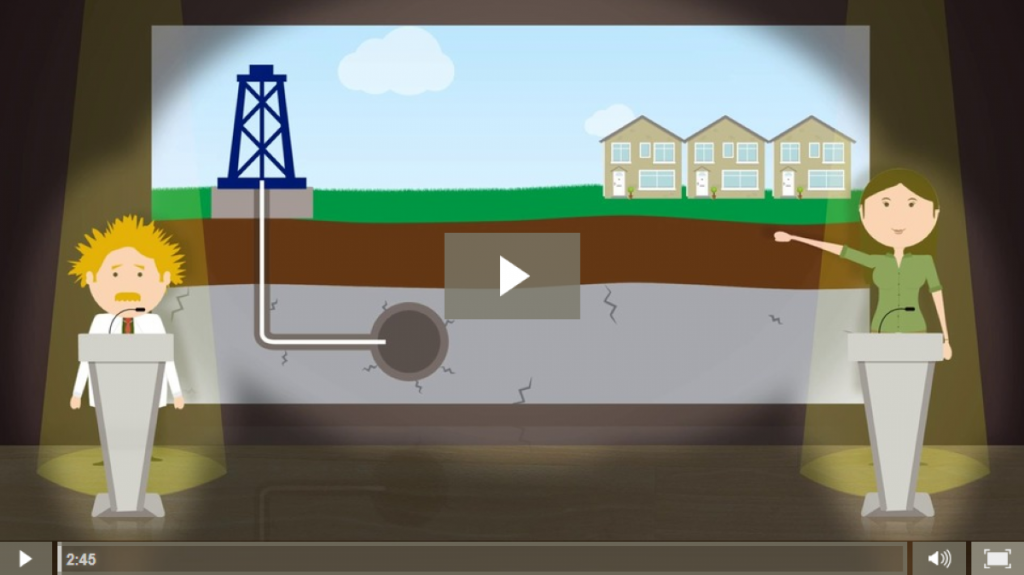Busting the myths around fracking
Busting the myths around fracking
Fracking has been at the centre of much controversy in recent times, but what is the real story. The Chemical Industries Association explores both sides of the fracking debate.
PRESENTER
There have been a lot of stories in the news about fracking, but many people don’t hold the full facts on the issue. In a nutshell, a mixture of water, sand and a small amount of chemicals under pressure are used to dissolve underground rocks to extract the shale gas.
As with anything, there are positives and negatives to consider.
SCIENTIST
Fracking cuts Europe's reliance on Russia and the Middle East fuel, so our energy needs are met closer to home.
OPPONENT
But at what cost? There’s proof fracking can increase the chances of earthquakes
SCIENTIST
Robust regulation means risks are now minimal. UK authorities review all applications before licensing and have a system in place for monitoring seismic activity.
OPPONENT
But pumping a cocktail of chemicals into the Earth can't be good – surely this will contaminate water supplies.
SCIENTIST
This is unlikely as the process is strictly policed and chemicals are only used initially to open the well. Chemicals are in such low concentrations that the fracturing mixture is more than 99 per cent sand and water.
OPPONENT
But I’ve heard they often use hydrochloric acid and other hazardous chemicals.
SCIENTIST
Hydrochloric acid is found in toilet cleaners at concentration 100 times higher than what’s used in fracking! The chemical industry works closely with customers in selecting fracking chemicals.
OPPONENT
Even so, won’t there be disruption to local communities.
SCIENTIST
Yes, but the economic benefits to local communities far outweigh the initial disruption. Shale gas could potentially support 74,000 jobs a year and producers have committed to providing communities with a portion of their revenues. Furthermore, this gas is cheaper than imported energy and will bring down the cost of other fossil fuels.
As an added bonus, the extracted shale gas releases less carbon, so can help countries meet their climate change obligations.
OPPONENT
Shale gas may release less carbon but infinite supplies of renewables is better for the environment.
SCIENTIST
Maybe, but last year electricity generated from renewable sources accounted for only 12% of generation, with gas at 28%. As coal fired generation is retired and intermittent renewables come online, the role of gas in our energy mix will become even more vital.
PRESENTER
As you can see, there is a lot of debate about fracking that should continue. However, we believe that there are major positives for the UK not least strengthening competitiveness and creating jobs at an important time for the European economy.





-01.png)